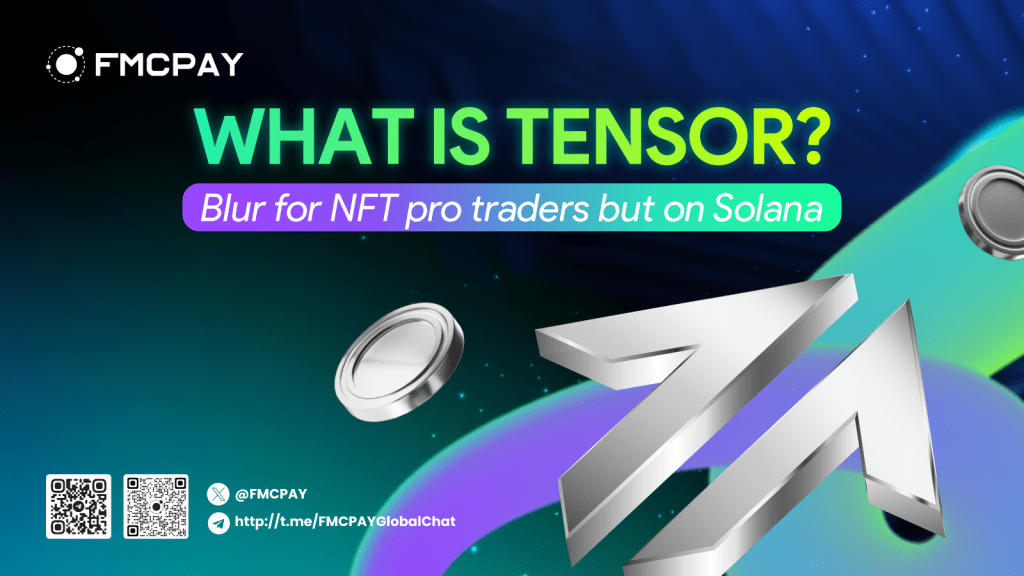NFT is resurging in the crypto market, yet professional trading on Solana faces limitations. What is Tensor? Enter Tensor, a leading platform aiming to enhance Solana NFT trading. FMCPAY will discover why it’s hailed as the Solana leader.
1. What is Tensor?
Tensor is an NFT trading platform (NFT Marketplace) on Solana, designed for professional traders in the NFT market. Inspired by Blur, Tensor aims to serve that purpose on Solana, providing professional NFT traders with an efficient platform for their transactions.
Read more: What are NFT Marketplaces? Notable Platforms You Need to Know
Tensor supports a range of features such as exchange, auction, storage, conversion, and NFT management, similar to Blur.
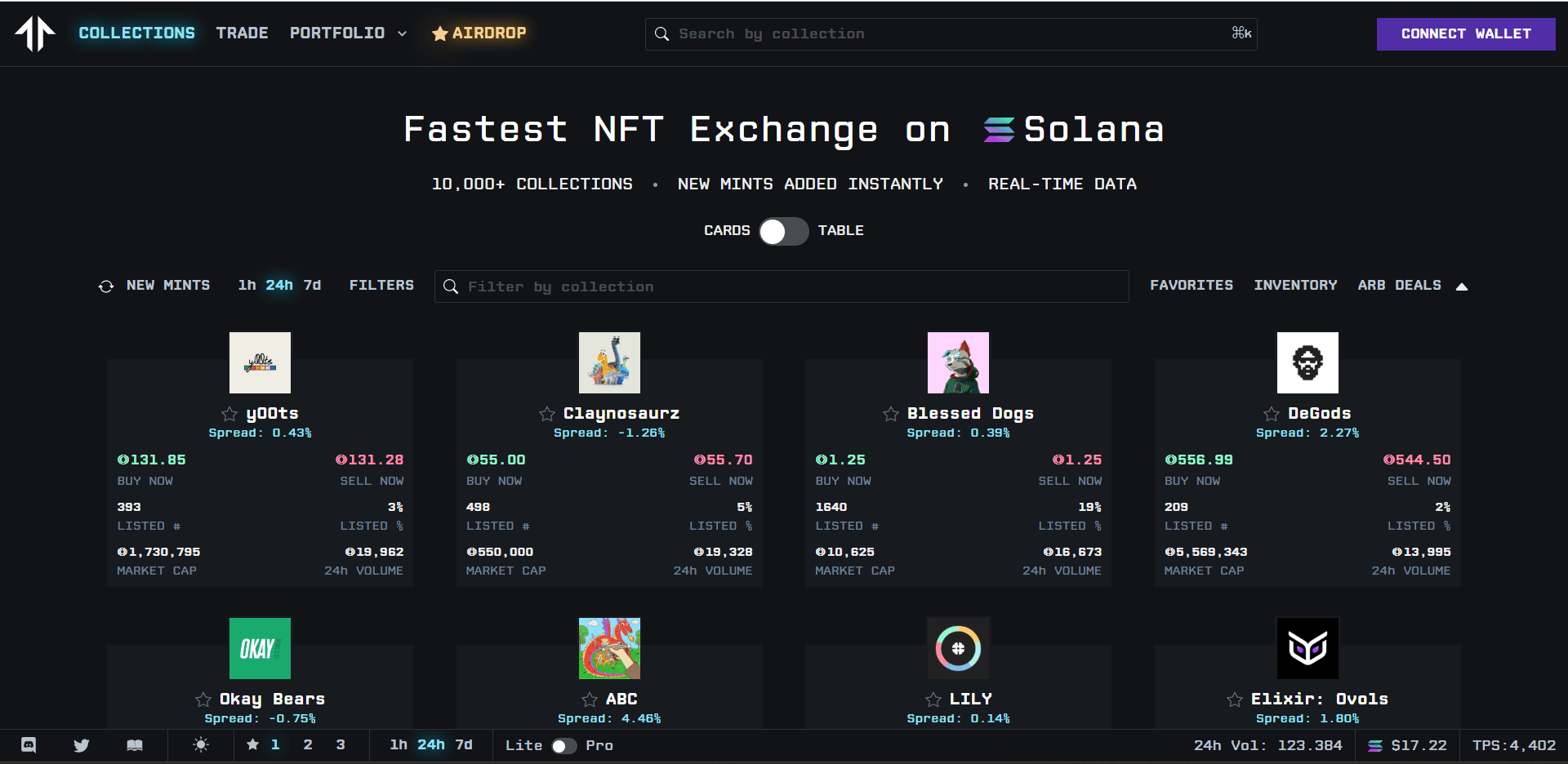
2. Products
Tensor AMM & Marketplace
This is the world’s first marketplace platform that combines AMM and NFT marketplace. It allows auctions on collections and instant liquidity for sellers through the “sell now” button. Notably, orders are based on the Bonding-curve, enabling Dollar-Cost Averaging (DCA) for NFTs and providing a reward mechanism for early liquidity providers. Moreover, Tensor AMM & Marketplace allows users to operate their AMM and design fees. Importantly, this product charges no execution fees (listing, bids, market-making) and only charges a 1% fee for takers.
Despite entering the NFT Marketplace scene later, on March 26, 2023, Tensor officially became the largest NFT trading platform on Solana, surpassing both MagicEden and Hadeswap. Currently, MagicEden is seen as Tensor’s competitor on Solana, similar to how OpenSea competes with Blur in the Ethereum market.
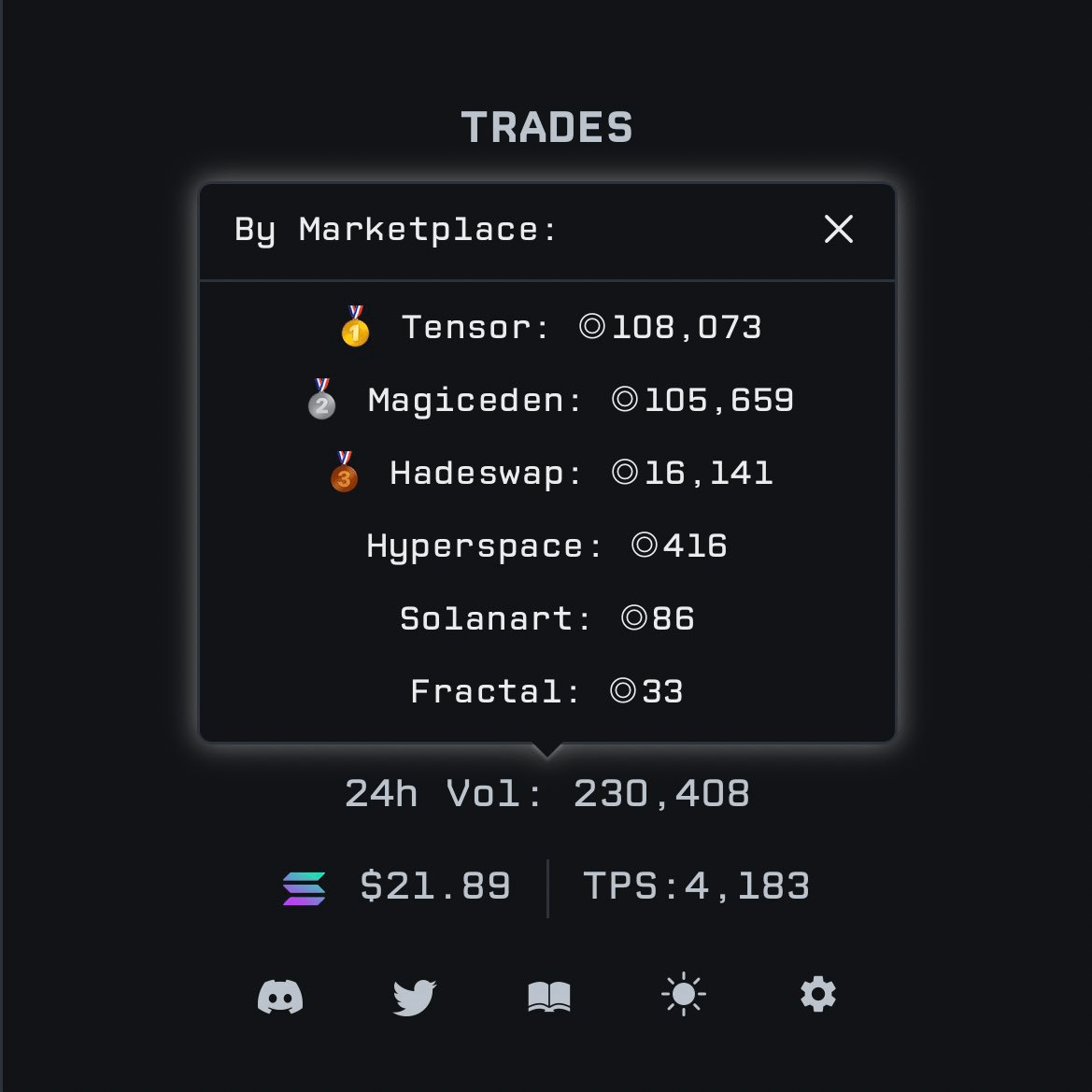
Tensor currently allows liquidity provision for NFTs through the following methods:
1. Collection-wide Bids:
- Users can make bids to buy any NFT within Collection A with descending prices.
- This mechanism enables users to purchase NFTs at decreasing prices within a specific collection.
2. Listings:
- Sellers can list multiple NFTs simultaneously with prices changing according to a linear curve.
- This feature allows for the simultaneous listing of NFTs with prices adjusting along a linear curve.
3. Market-making Orders:
- Users can provide liquidity for both buy and sell orders within a specific NFT collection.
- This functionality enables users to contribute liquidity to both the buying and selling sides of a specific NFT collection.
These mechanisms offered by TensorSwap provide flexibility for users to engage in various liquidity provision strategies within the NFT market.
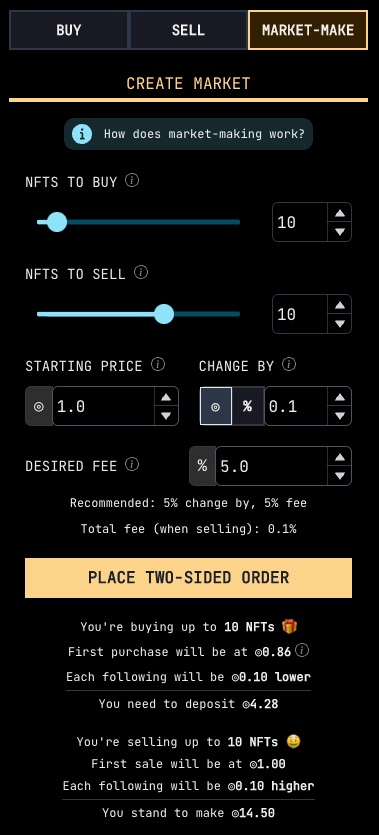
Tensor Aggregator
In addition to its basic function as a place to buy, sell, and list various types of NFTs, Tensor also acts as an “aggregator” NFT marketplace from various sources. This allows users to buy and sell NFTs on different exchanges at the best prices through the Tensor interface. Users can aggregate liquidity from most major marketplaces on Solana with a user-friendly interface and real-time data updates.
The markets that Tensor currently supports for aggregating liquidity for NFTs include TensorSwap, HadeSwap, HyperSpace, MagicEden, and Solanart.
Additionally, this product integrates TradingView and provides advanced analysis tools and charts for users.
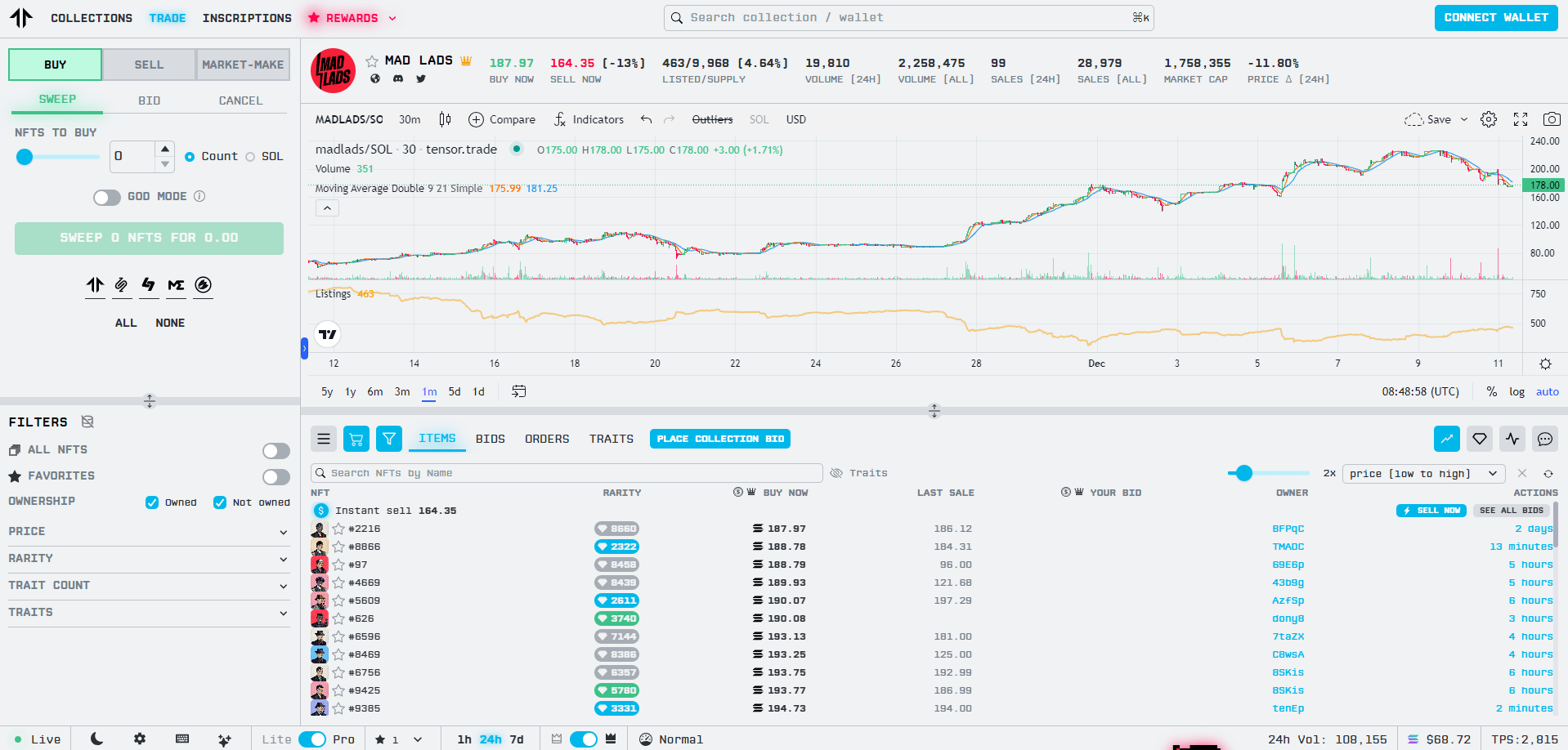
Rarity Ranking
Tensor’s Rarity Ranking mechanism is a tool that helps assess the price of NFT collections based on a rarity rating system. Currently, Tensor supports four Rarity ranking systems for each collection. Two mechanisms (HowRare and MoonRank methodology) are automatically calculated and available on each collection, and two mechanisms (Trait Normalized and Team Vision) rely on HowRare’s API and are applied to a few collections. As of now, Tensor supports the Rarity ranking of over 10,000 collections in the Solana ecosystem.
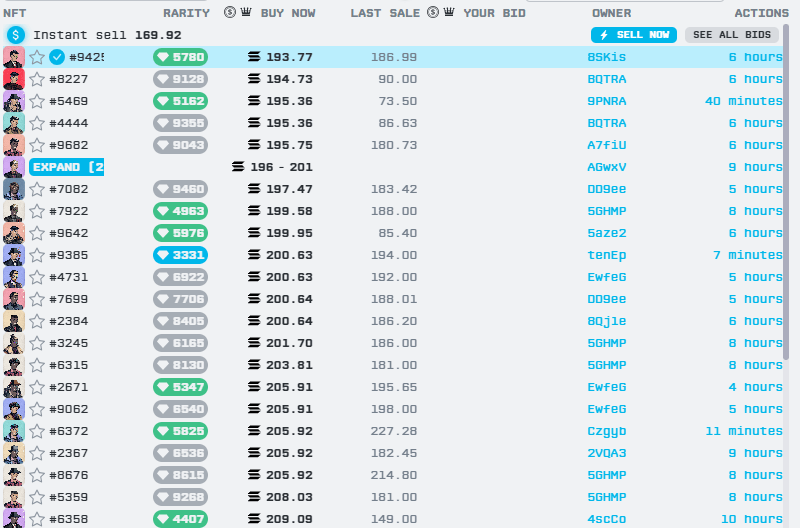
Transaction Fees
When trading on Tensor, users will need to pay certain fees to execute NFT transactions. However, these fees will vary depending on the marketplace users are trading on.
- Tensor Trade (Aggregator): This platform will not charge buyers’ transaction fees when trading on the marketplaces aggregated within the platform. Instead, users only need to pay the fee set by that marketplace.
- Tensor Swap (NFT AMM): Charges a maximum of 0.1% platform fee and 0.9% copyright fee for creators.
3. Highlights of Tensor
- Integrates over 10,000 NFT collections on Solana, serving as a hub for aggregated NFT liquidity from popular exchanges like MagicEden, Solanart, HadeSwap, and more. It also allows users to list NFTs directly on Tensor.
- Advanced management tools like NFT Portfolio, providing crucial information about NFTs, profit/loss, and trade activity.
- User-friendly UI/UX optimized to provide comprehensive information about an NFT collection on a single page. Tensor also offers a Lite interface for regular users and a Pro interface for professional NFT traders.
- Liquidity provision feature for NFTs through TensorSwap, allowing liquidity providers to set fees from 0-25% for their NFT pools.
- Integrates four rarity ranking and assessment systems for each NFT collection, helping users assess prices more accurately and make smarter buying and selling decisions.
- Provides real-time data and enhanced analysis tools for NFT collections on the blockchain, helping users make informed investment decisions.
4. Notable Achievements
In early May 2023, Tensor achieved a 45% market share of Solana’s NFT market, surpassing Magic Eden’s 44% in just 7 days, according to data collected by Tiexo. Although the 1% difference may seem negligible, it is a significant leap for a relatively new platform compared to a giant with nearly 200 times the user base.
Tensor launched its private beta version in June 2022 and opened to the public the following month. By March, it had over 30,000 monthly active users, and by April, its Monthly Active Users (MAU) had increased by approximately 317% to over 125,000. Compared to Magic Eden, which has 22 million monthly visitors, Tensor’s market share becomes substantial.
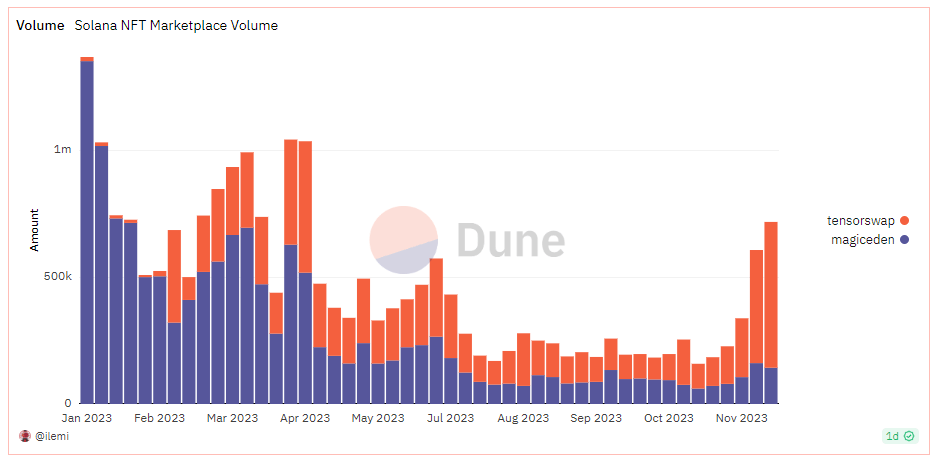
Moreover, there is speculation within the community that Tensor will introduce an airdrop strategy similar to Blur. Most recently, community members were encouraged by speculators to buy Tensorian NFTs, Tensor’s own NFT collection, to provide buyers with unique access to its professional trading products and exclusive chat rooms.
The Tensorian collection currently has a trading volume of $11.5 million, making it one of the most popular collections on Solana.
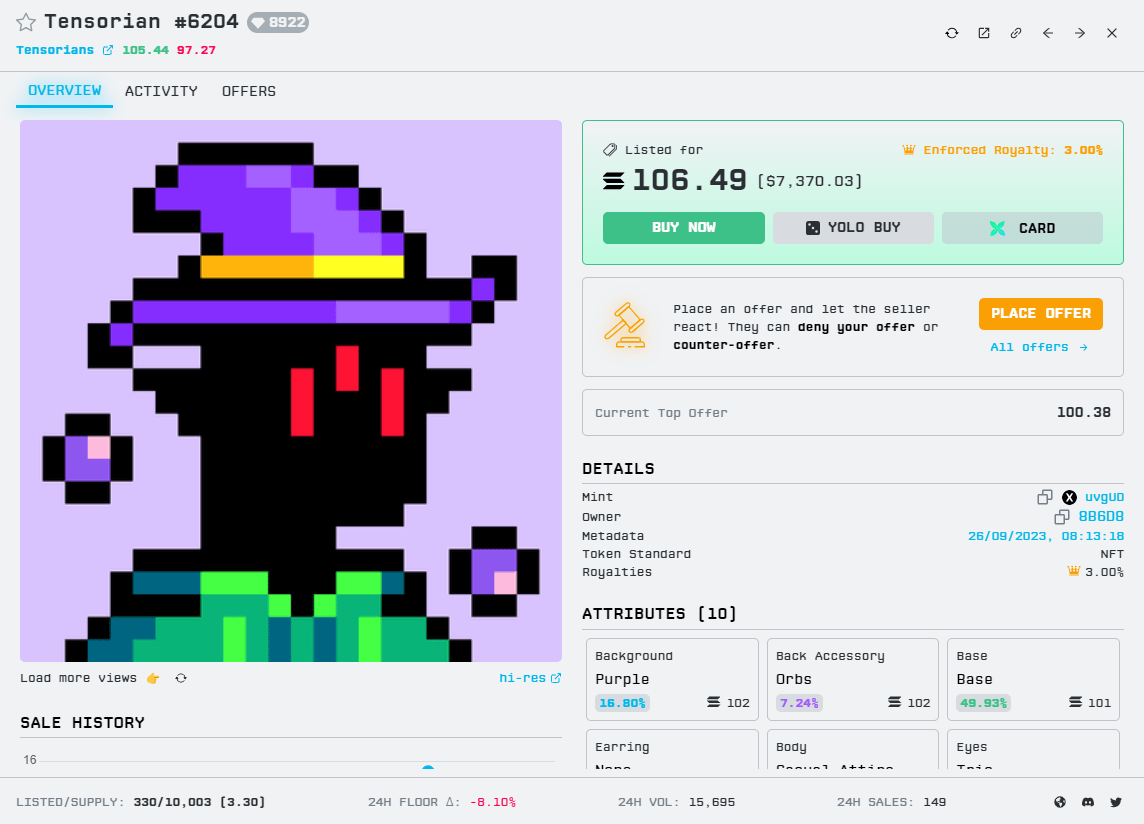
5. What is Tensor Tokenomics?
The $TNRS token has not been launched yet, and the project is running a farm points event based on transaction activities such as listing or bidding, similar to BLUR.
Token: $TNRS

Updating…
6. Roadmap
The development journey of Tensor is summarized as follows:
- February 2022: The founding team started developing Tensor.
- March 2023: Successfully raised $3 million in a Seed Round.
Tensor has not disclosed a specific roadmap with timelines. However, below are some features that the Tensor team intends to develop in the future:
- Gamifying rewards (points, reward boxes & NFTs)
- Derivatives & leverage
- Push notification system
- Login with multiple wallets
- Automated trading
- Advanced NFT analysis interface
- Integration with additional chains.
Currently, Tensor plans to approach and encourage users to trade on the platform similarly to Blur’s strategy on Ethereum by launching incentive programs and promising airdrops for NFT traders in the Solana ecosystem and individual users on TensorSwap.
7. Team
The development team of Tensor consists of pioneers in the NFT community. The co-founders of the project include two members:
- Richard (Co-founder): Richard is a software developer with experience in the Solana platform. Prior to Tensor, Richard worked at technology companies such as Google and Shopify.
- Ilmol (CTO): Ilmol is the Chief Technology Officer (CTO) of Tensor, specializing in blockchain technology and having extensive experience in building applications on the Solana platform.
Their Twitter handles are @0xrwu and @_ilmoi.
8. Investors & Partners
Investors and Funding Rounds:
The initial capital for Tensor in 2022 came entirely from prize money from participating in two Solana Hackathon competitions. Initially, the team planned to raise funds in November 2022; however, due to the adverse market conditions resulting from the FTX collapse, the team temporarily halted fundraising.
In March 2023, Tensor successfully raised funds again in a Seed Round, securing $3 million. In this round, Placeholder leads the funding, along with the participation of other funds such as Solana Ventures, Alliance DAO, and Big Brain Holdings with support from Solana Co-Founders Anatoly and Raj Gokal, and more.
Partners:
During the project’s development, Tensor has established partnerships with various platforms, including:
- NFT Collectibles: Robo Ramen, Wolf Capital NFT, Taiyo Robotics, Oggy, and more.
- Market Makers: Cyber Samurai, Lifinity, UGS Labs, and more.
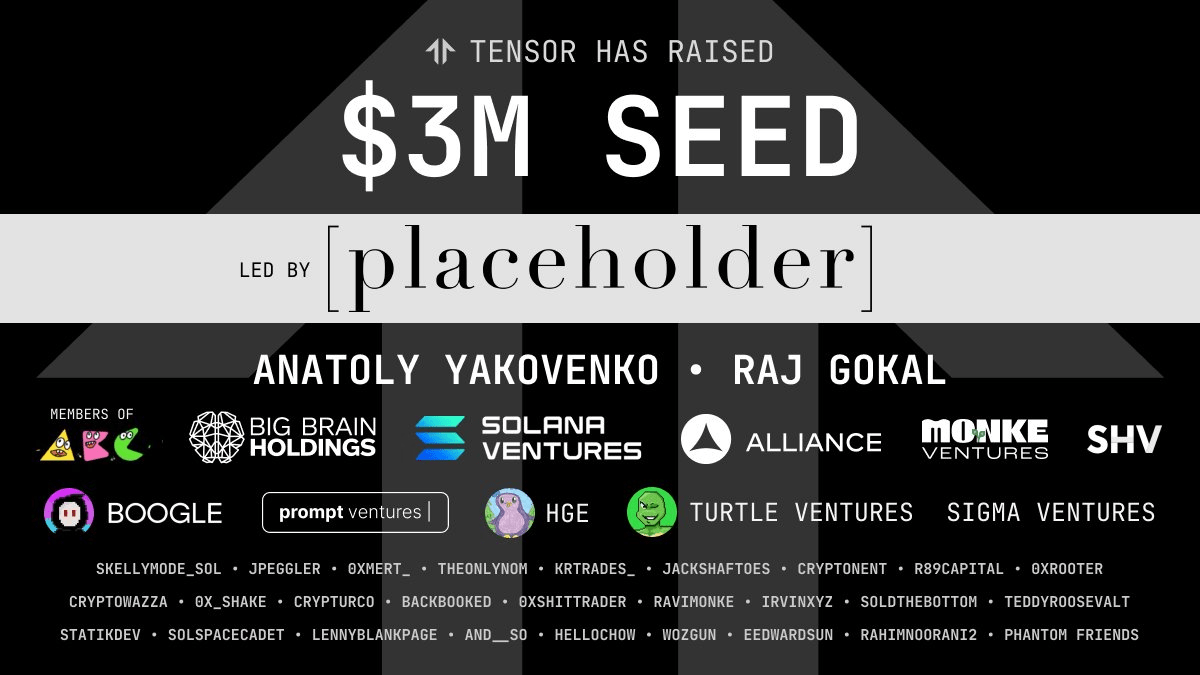
Official link
- Company website: https://www.tensor.so/
- Main product website: https://www.tensor.trade/
- Twitter: https://twitter.com/tensor_hq
Conclusion
Tensor is a promising project in the NFT space on the Solana blockchain, offering a diverse range of products. Particularly with the recent surge in NFT interest and the strong comeback of Solana, Tensor is undoubtedly a project that users cannot overlook in their portfolios.
The team consists of pioneers in the NFT community, and Tensor is becoming a prominent name in the NFT community, standing out as a notable project to watch in the near future, similar to Blur and Sudoswap.
FAQs:
Which NFT platform is best?
OpenSea dominates the NFT sales arena, boasting a diverse range of digital assets on its platform. Signing up and exploring the extensive offerings is free, and the platform supports artists and creators. If you’re interested in creating your own NFT, OpenSea provides an accessible and user-friendly process.
What are different types of NFT marketplace?
NFT marketplaces can typically be classified into three main types: universal, art-focused, and niche-specific. Universal platforms, such as OpenSea and Rarible, provide a wide range of NFTs, spanning from digital art to virtual real estate.
What is the NFT marketplace using Blockchain?
An NFT marketplace is a publicly accessible blockchain platform that is gaining popularity in the digital market. It simplifies the exploration, purchase, sale, and exchange of Non-Fungible Tokens (NFTs) that represent unique digital assets.
FMCPAY RESEARCH (VINCΞ)

